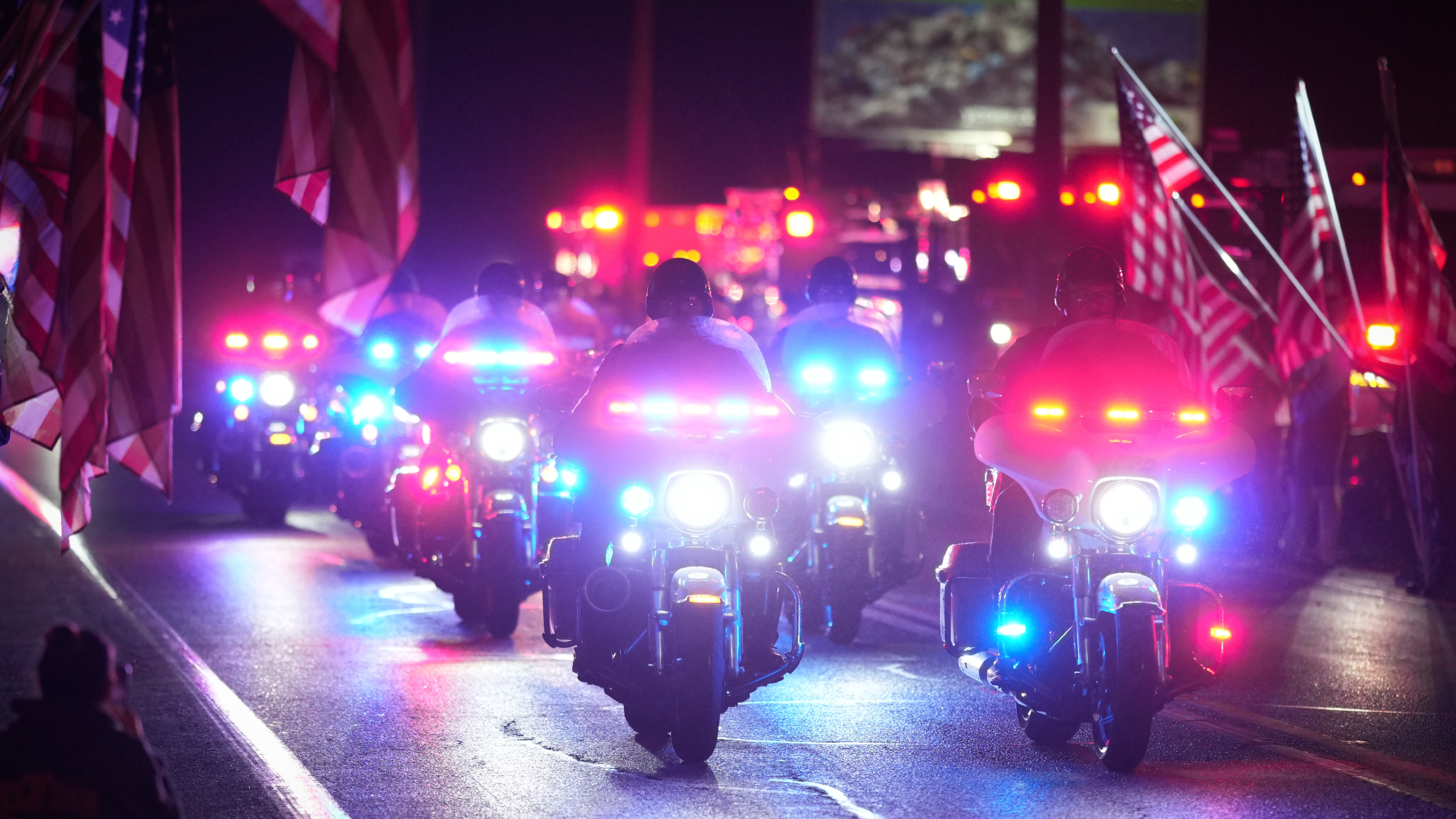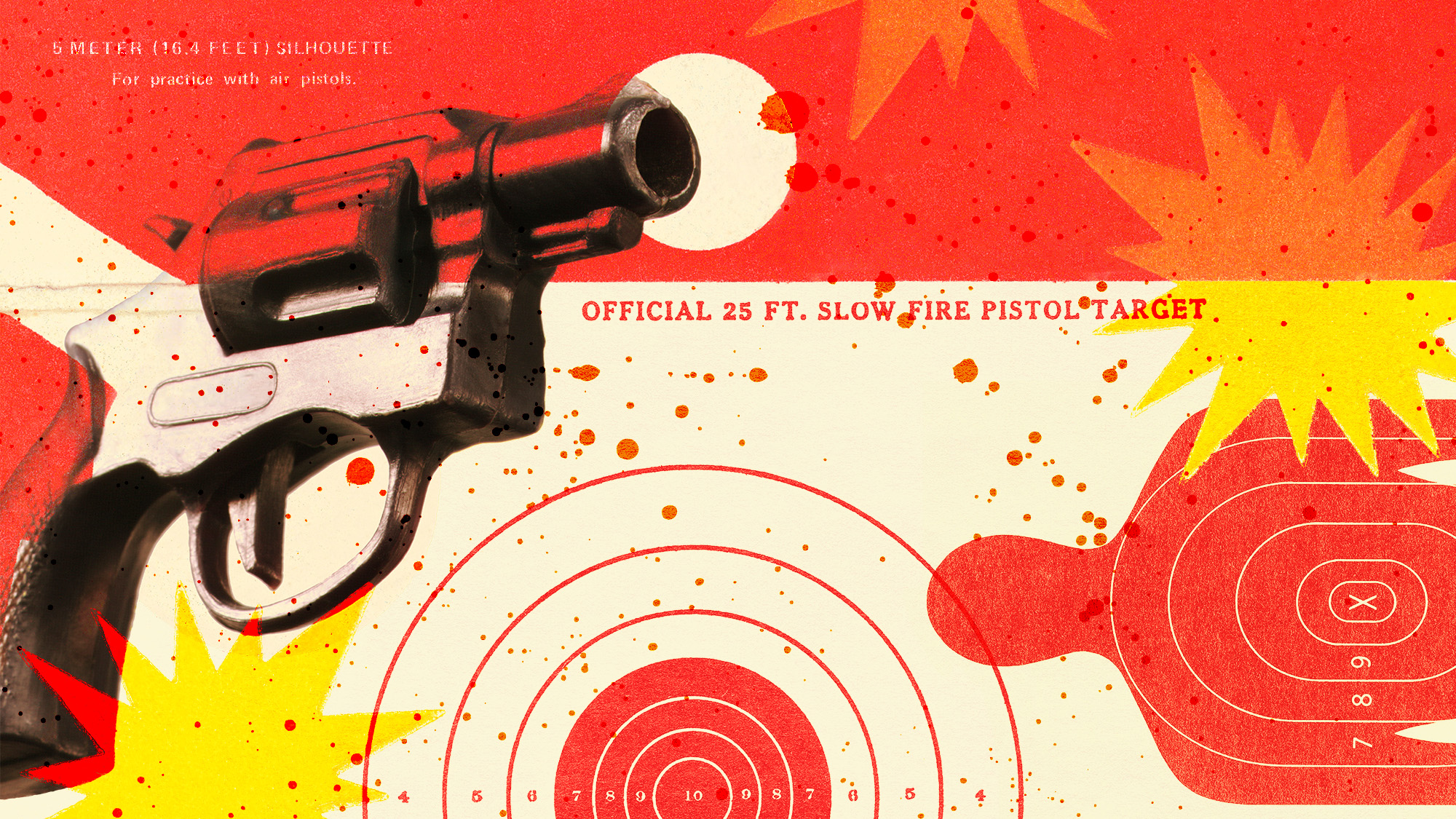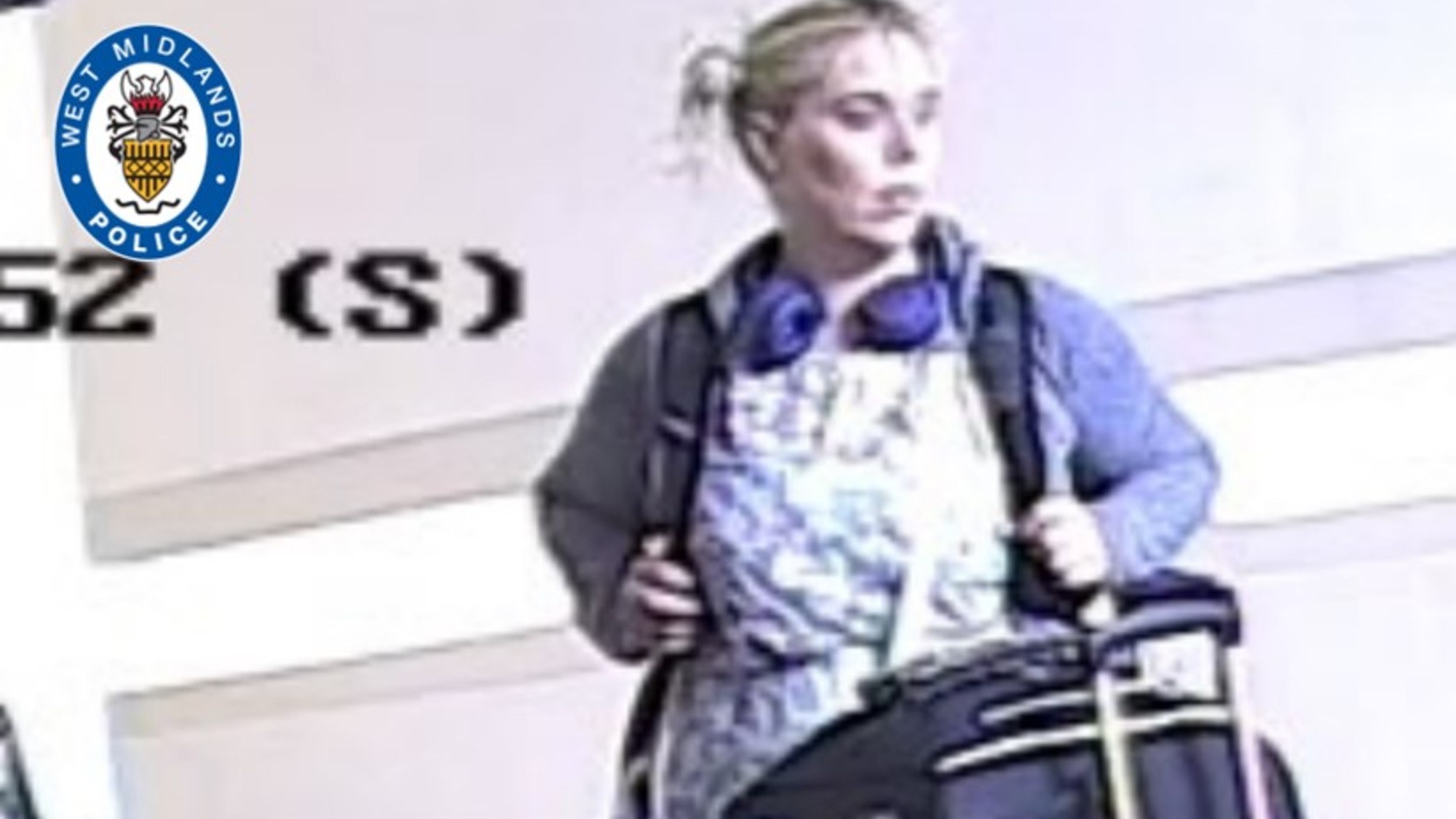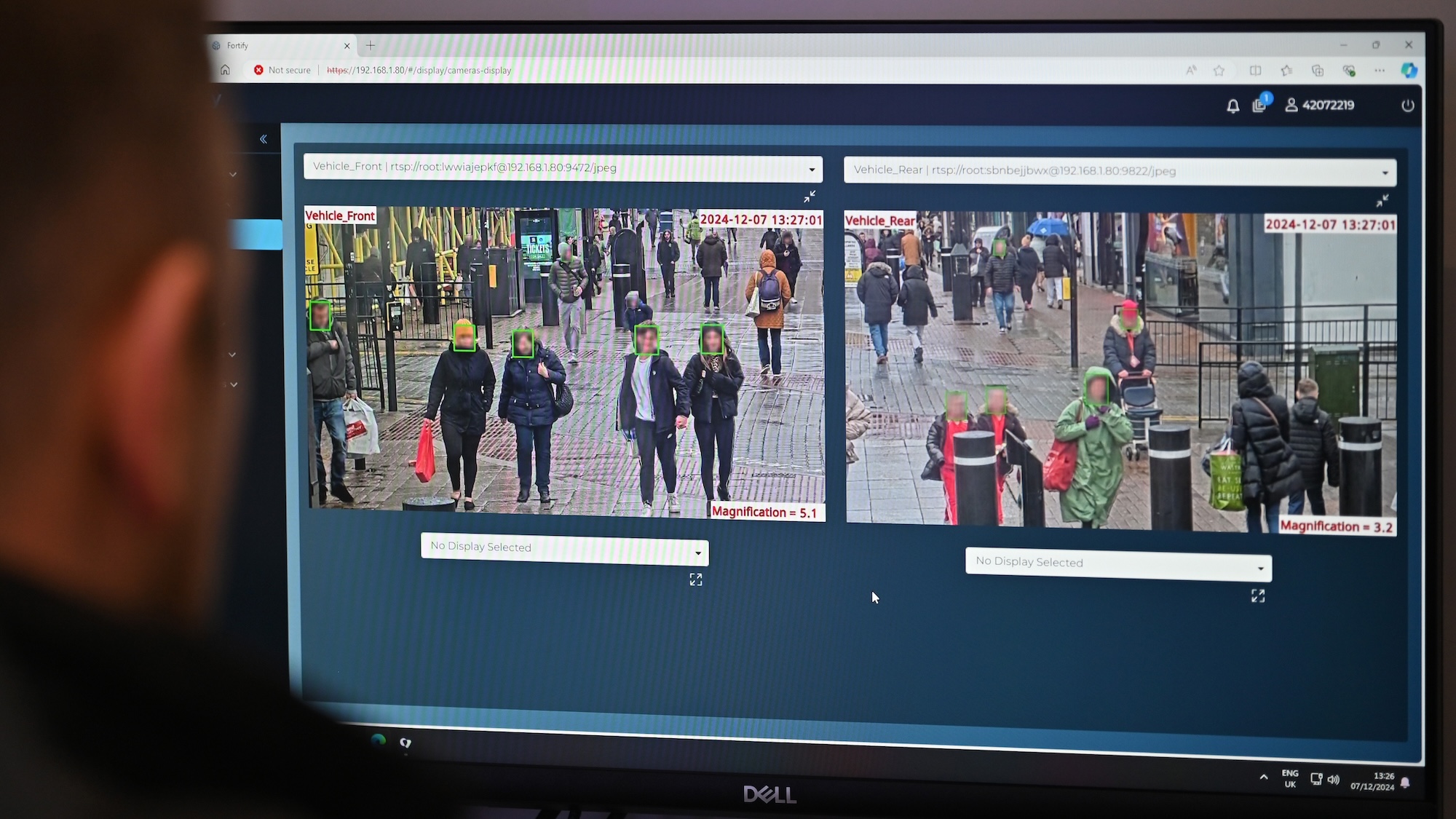Why is gun crime on the rise?
Poverty, smuggling and ‘county lines’ blamed for increase in firearms offences across England and Wales

A free daily email with the biggest news stories of the day – and the best features from TheWeek.com
You are now subscribed
Your newsletter sign-up was successful
Two-thirds of police force areas in England and Wales are seeing rising gun crime, according to analysis of Home Office data carried out by The Guardian.
While the trend is at odds with a 14% fall in firearms offences nationally over the past decade – driven by a big drop in London – 29 out of 43 English and Welsh police forces have seen increases in gun crime during that same period.
Eight of those forces reported a doubling of the number of offences involving firearms, and one force saw levels six times higher than a decade ago.
The Week
Escape your echo chamber. Get the facts behind the news, plus analysis from multiple perspectives.

Sign up for The Week's Free Newsletters
From our morning news briefing to a weekly Good News Newsletter, get the best of The Week delivered directly to your inbox.
From our morning news briefing to a weekly Good News Newsletter, get the best of The Week delivered directly to your inbox.
Gun crime hit the headlines again recently after the murder of nine-year-old Olivia Pratt-Korbel, who died hiding behind her mother as a gunman opened fire in her family home in Liverpool. The incident led to an outpouring of grief in the community and speculation over what is driving the rising levels of gun crime in many parts of the country.
County lines
Peter Squires, professor of criminology at the University of Brighton, told The Guardian that so-called “county lines” – a form of criminal exploitation where urban gangs persuade young people to take drugs to rural areas of the country – are probably behind the rise in gun crime in places such as Sussex, Kent and Cheshire.
“In about 2010 there were gun crime hotspots where gangs were and there appeared to be some movement out of the problematic conurbations to places where police weren’t quite on the ball as much,” Squires said.
Figures from May 2021 suggest there are currently 600 potential county lines, which is a reduction on previous estimates due to more accurate recording methods and improved police activity, the BBC said. However, “violence can be a common feature of county lines with many also arrested for weapons offences and sometimes other violent crimes”.
A free daily email with the biggest news stories of the day – and the best features from TheWeek.com
Gun smuggling
The prevalence of firearm offences is also partially to do with gun smuggling, experts say. Firearms can now be hired for as little as £100 around the UK and can be acquired in “less than a day”, reported the i news site’s investigations correspondent Dean Kirby.
According to Dr Robert Hesketh, a criminology expert at Liverpool John Moores University, it is “relatively easy” to get hold of a firearm in many cities.
“A MAC-10 will cost about £3,000, an MP5 £3,000,” Hesketh said. “These are automatic weapons. Another gun doing the rounds a few years ago and possibly now was a Desert Eagle, for about £500. It isn’t hard, put it that way.”
There is also an option to rent a weapon – with criminals borrowing firearms for short periods. “You can get one possibly for £100 to £150 if you know the right people,” Hesketh said.
While it is working to cut off supplies to the UK, the National Crime Agency has seen a “gradual increase” in the use of fully automatic weapons.
Some of the weapons used are deactivated or blank-firing devices, which are being bought in eastern Europe, where they are legal and unrestricted. They are then illegally reactivated by criminals before being transported to the UK, Kirby said.
Guns can also be bought on the dark web, and stolen, lawfully bought guns have also ended up being used in shootings. On the messaging app Telegram The Sunday Times found firearms advertised for sale from £400.
In 2019/20, the National Crime Agency seized 552 illegal firearms in the UK and abroad. The UK Border Force, meanwhile, picked up 2,600 lethal and non-lethal firearms in the year to September 2020.
Poverty and desperation
However, Yvette Cooper, the shadow home secretary, said the Home Office was not doing enough to stop guns entering the country, The Guardian reported.
“In many areas, gun crime has now got worse but police forces are struggling to turn it round because they have lost so many neighbourhood police and are seeing widespread detective shortages after a decade of Conservative cuts to police numbers,” she said.
Meanwhile, Tom McNeil, the assistant police and crime commissioner for the West Midlands, told the Express that the cost-of-living crisis could be contributing to the growth of violent crime around the country.
“I don’t want to go around sugar-coating the reality,” he said. “It is about acknowledging poverty causes desperation and people do desperate things when they feel they don’t have another choice.”
Arion McNicoll is a freelance writer at The Week Digital and was previously the UK website’s editor. He has also held senior editorial roles at CNN, The Times and The Sunday Times. Along with his writing work, he co-hosts “Today in History with The Retrospectors”, Rethink Audio’s flagship daily podcast, and is a regular panellist (and occasional stand-in host) on “The Week Unwrapped”. He is also a judge for The Publisher Podcast Awards.
-
 The environmental cost of GLP-1s
The environmental cost of GLP-1sThe explainer Producing the drugs is a dirty process
-
 Greenland’s capital becomes ground zero for the country’s diplomatic straits
Greenland’s capital becomes ground zero for the country’s diplomatic straitsIN THE SPOTLIGHT A flurry of new consular activity in Nuuk shows how important Greenland has become to Europeans’ anxiety about American imperialism
-
 ‘This is something that happens all too often’
‘This is something that happens all too often’Instant Opinion Opinion, comment and editorials of the day
-
 Why have homicide rates reportedly plummeted in the last year?
Why have homicide rates reportedly plummeted in the last year?Today’s Big Question There could be more to the story than politics
-
 How the ‘British FBI’ will work
How the ‘British FBI’ will workThe Explainer New National Police Service to focus on fighting terrorism, fraud and organised crime, freeing up local forces to tackle everyday offences
-
 ‘Stakeknife’: MI5’s man inside the IRA
‘Stakeknife’: MI5’s man inside the IRAThe Explainer Freddie Scappaticci, implicated in 14 murders and 15 abductions during the Troubles, ‘probably cost more lives than he saved’, investigation claims
-
 3 officers killed in Pennsylvania shooting
3 officers killed in Pennsylvania shootingSpeed Read Police did not share the identities of the officers or the slain suspect, nor the motive or the focus of the still-active investigation
-
 Dash: the UK's 'flawed' domestic violence tool
Dash: the UK's 'flawed' domestic violence toolThe Explainer Risk-assessment checklist relied on by police and social services deemed unfit for frontline use
-
 Trump lambasts crime, but his administration is cutting gun violence prevention
Trump lambasts crime, but his administration is cutting gun violence preventionThe Explainer The DOJ has canceled at least $500 million in public safety grants
-
 Aimee Betro: the Wisconsin woman who came to Birmingham to kill
Aimee Betro: the Wisconsin woman who came to Birmingham to killIn the Spotlight US hitwoman wore a niqab in online lover's revenge plot
-
 The ethics behind facial recognition vans and policing
The ethics behind facial recognition vans and policingThe Explainer The government is rolling out more live facial recognition technology across England